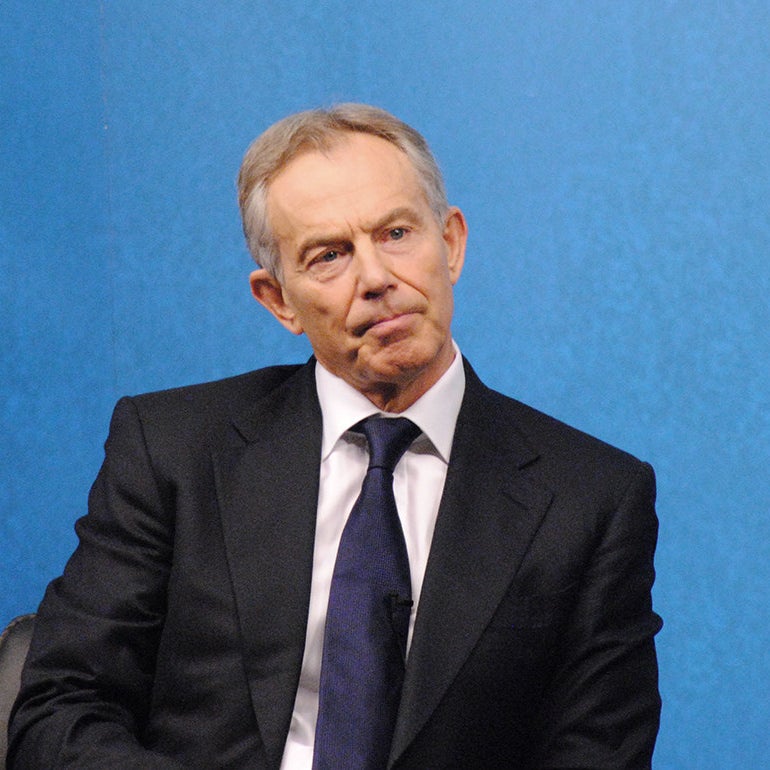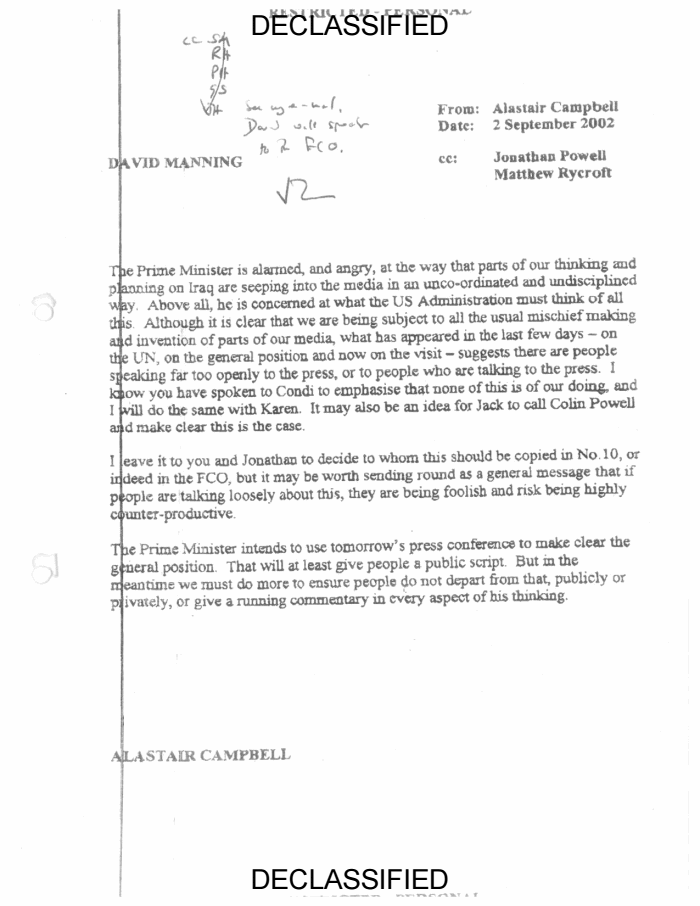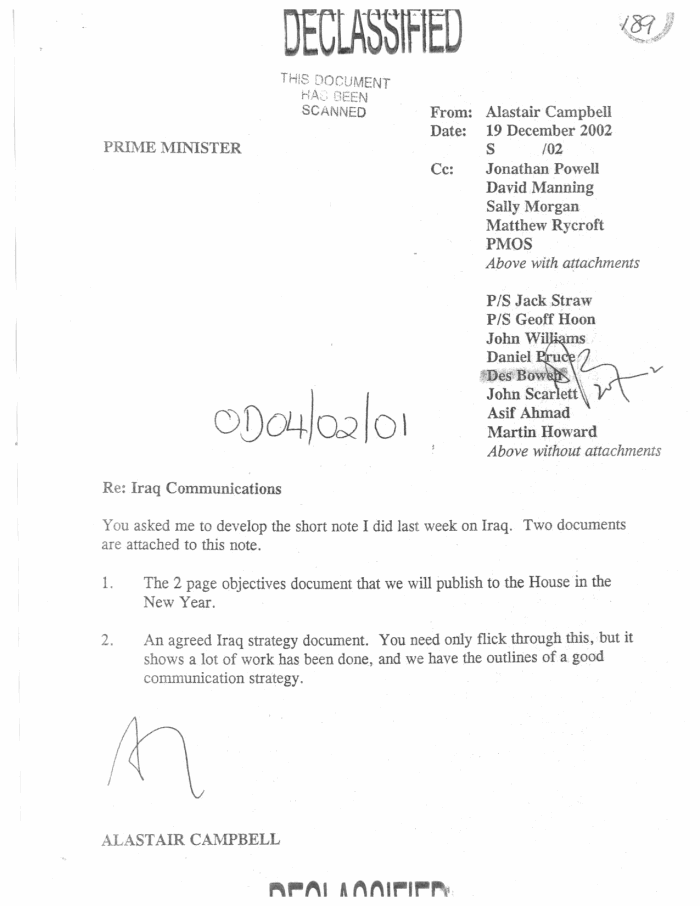

The Chilcot inquiry has provided unprecedented insight into how Tony Blair's office, led by his press secretary Alastair Campbell, sought to spin the war in Iraq.
The inquiry found that by late August 2002, the government was "troubled" by speculation that a decision had "already been taken to use military force". In response, Blair took a decision on 3 September to publish a controversial dossier that was designed to secure support from MPs and the public for the argument that action was needed.
Below is a memo Campbell sent to Blair's foreign policy adviser, Sir David Manning, Jonathan Powell, who was Blair’s chief of staff, and Matthew Rycroft, one of Blair’s two private secretaries, the day before the dossier was published.
In it, he says Blair was “alarmed, and angry, at the way parts of our thinking and planning on Iraq are seeping into the media in an uncoordinated and undisciplined way”.
In a particularly telling line referring to Blair he says: “Above all he is concerned what the US Administration must think of all this."
Chilcot has concluded that the information about Iraq's weapons of mass destruction in the dossier was presented "with a certainty that was not justified".
He took issue with the dossier's executive summary, saying: "The assessed intelligence had not established beyond doubt that Saddam Hussein had continued to produce chemical and biological weapons.
Chilcot adds: "Nor had the assessed intelligence established beyond doubt that efforts to develop nuclear weapons continued."
His report goes on: "The Inquiry is not questioning Mr Blair’s belief, which he consistently reiterated in his evidence to the Inquiry, or his legitimate role in advocating Government policy.
"But the deliberate selection of a formulation which grounded the statement in what Mr Blair believed, rather than in the judgements which the Joint Intelligence Committee (JIC) had actually reached in its assessment of the intelligence, indicates a distinction between his beliefs and the JIC’s actual judgements."
Months after the September dossier had been released, Campbell sent a second memo to advisers and ministers:
The memo shows the intricate detail with which Campbell had planned his communications strategy. There were to be "weekly strategy meetings" as well as "daily reviews", all with the aim of meeting "long-term objectives" as set out in a separate document.
Campbell writes: "We need to guard against the sense that we are looking for the [diplomatic] process to fail."
He says the differences in tone between the UK and the US "are not harmful" to either country – so while the US can "dismiss" weapons inspectors, the UK can appear to be "deliberative".
He talks about the ways to rebut criticism, such as double standards on Israel and the "poodle" charge – that the UK was merely being led by the US. He had assembled a "team of ministers" to go on Arab media.
Campbell also sets out how the UK should build a "tone of regret" around the UN discussions that followed, and says the argument will move from "sometimes only way to avoid conflict is by making clear willing to use force if necessary" to "We did not want war, but Saddam Hussein has rejected the peaceful path to disarmament."
Campbell has responded to the Chilcot report in a lengthy blog post.
blog: mistakes yes, but no lies, deceit, secret deals, 'sexing up'. And ultimately a matter of leadership/judgement https://t.co/MZ9NFYWg4p
In reference to a controversial BBC report on his input, he writes: "The truth was – and remains, confirmed today – that the so-called sexing up of intelligence never happened."
This is a view with which Chilcot essentially agrees: "The JIC accepted ownership of the dossier and agreed its content. There is no evidence that intelligence was improperly included in the dossier or that No.10 improperly influenced the text."
On the subject of weapons of mass destruction, Campbell writes: "We sincerely believed the intelligence on WMD, and we believed Saddam might use them because he had done so when threatened in the past."


